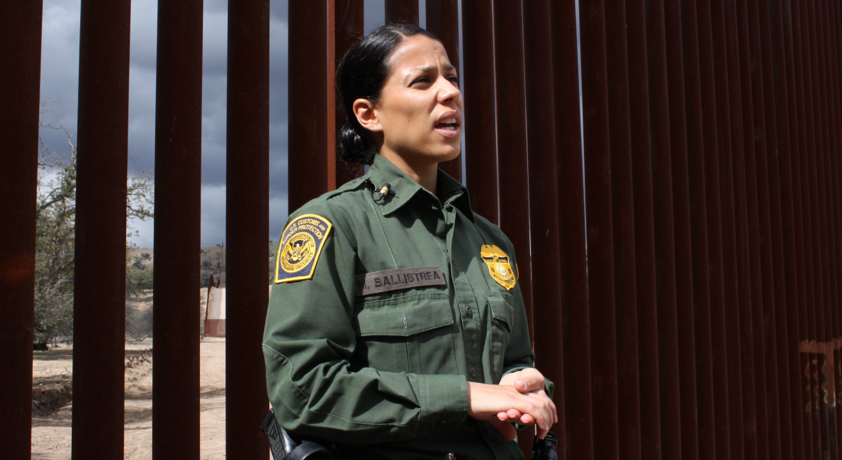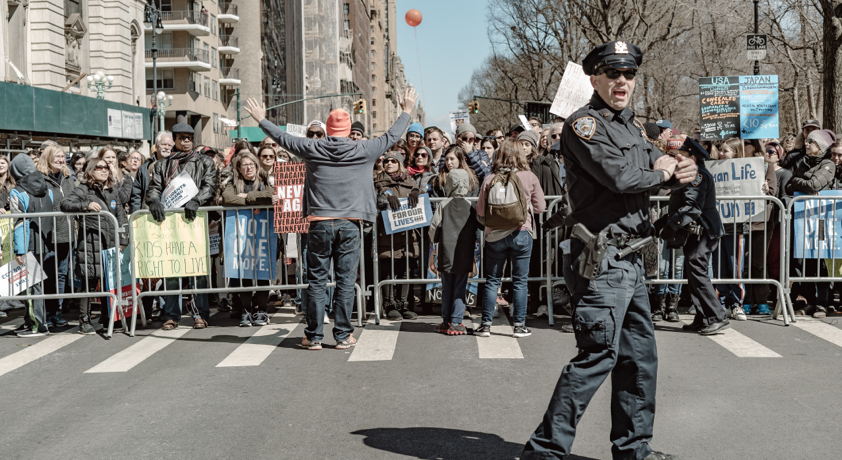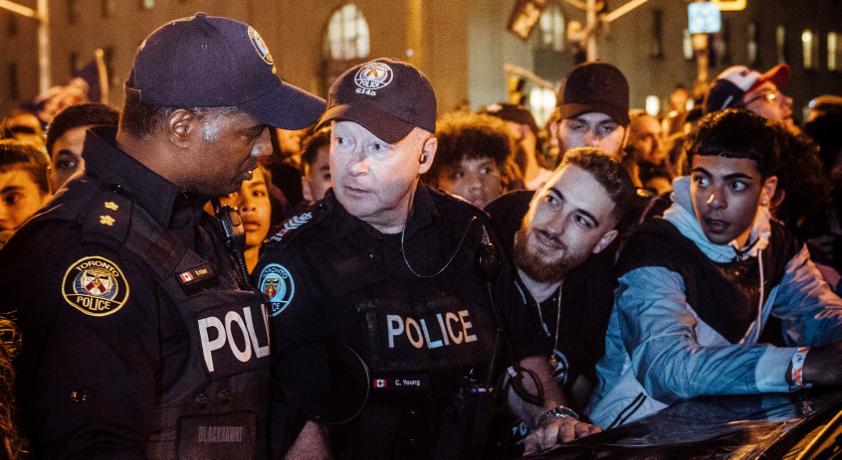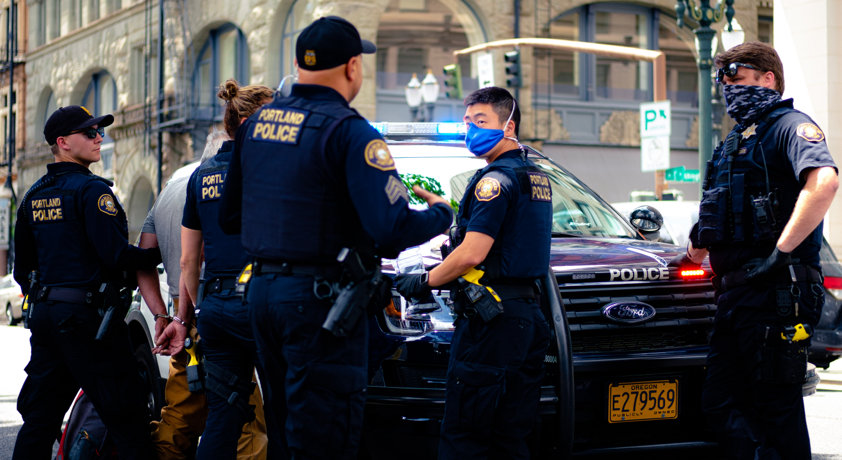Last Updated: 23 July, 2023

Border Patrol Agent
Border Patrol Agents work tirelessly to safeguard the integrity of the country’s borders. Delve into their role in combating illegal immigration, preventing smuggling, and ensuring the safety of communities across the nation.
Border security and immigration enforcement are vital components of a nation’s sovereignty and protection. At the forefront of this critical mission are the dedicated and courageous Border Patrol Agents. These agents play a pivotal role in safeguarding the nation’s borders, preventing illegal crossings, combating smuggling, and upholding immigration laws.
What Is a Border Patrol Agent?
Border Patrol Agents are law enforcement officers who work under the oversight of the U.S. Customs and Border Protection Agency or CBP. As a division of the Department of Homeland Security, agents are tasked with rigorous oversight, surveillance, and policing of U.S. international borders with Mexico, Canada, and the coastline near Florida and Puerto Rico. Established in 1924, the U.S. Border Patrol has evolved into one of the most critical elements of the nation’s homeland security efforts.
The mission of the U.S. Border Patrol is to detect and prevent the illegal entry of individuals, drugs, and contraband into the United States. They operate along the borders and coastal areas, using their skills, training, and dedication to protect the nation’s borders from various threats.
What Does a Border Patrol Agent Do?
Border Patrol Agents perform a wide range of duties, all of which contribute to maintaining border security. Their work extends beyond simply patrolling the borders; it involves identifying, apprehending, and processing individuals who attempt to cross the border illegally. Some of their key duties and responsibilities include:
Prevent Illegal Entry & Conduct Investigations
Agents are responsible for ensuring that no unauthorized persons enter the United States illegally. They also conduct investigations related to the trafficking or smuggling of people, narcotics, or firearms across U.S. borders. Border Patrol offices frequently collaborate and share resources with other federal, state, and local agencies including the DEA, the FBI, the CIA, Homeland Security Investigations and State Police. In conjunction with other Homeland Security Divisions and law enforcement agencies, Border Patrol agents prevent or prosecute thousands of potentially dangerous individuals who attempt to illegally gain entry to the United States.
Monitoring & Surveillance
Many Border Patrol Agents oversee traffic checkpoints along routes that lead from other nations’ territories into the United States. Others are responsible for “Line watch,” surveillance of the border space to identify threats through direct observation or via sensor alerts. Still, other agents are tasked with “Sign cutting,” outdoor forensics with the intention to identify prior border breaches through physical signs like vehicle tracks or damaged brush. Marine patrols, border patrols, and transportation checks are also common duties.
Border Patrol Agent Requirements
Becoming a Border Patrol Agent requires meeting rigorous qualifications and completing specialized training. Candidates undergo a comprehensive selection process that includes background checks, medical examinations, and a series of interviews.
- Physical Fitness: Physical fitness is a critical aspect of a Border Patrol Agent’s job. Candidates must pass a physical fitness test, which includes elements such as running, sit-ups, and push-ups, to demonstrate their ability to meet the demands of the job.
- Firearms and Tactical Training: Border Patrol Agents receive extensive training in the use of firearms and tactical operations. This training equips them to handle various situations they may encounter during their duties.
- Language Proficiency: Language proficiency, particularly in Spanish, is highly valued in border enforcement. Proficiency in Spanish allows agents to communicate effectively with individuals from diverse backgrounds and enhances their ability to carry out their responsibilities.
Life as a Border Patrol Agent
Life as a Border Patrol Agent is dynamic and challenging. Agents work in various terrains and climates, ranging from desert landscapes to rugged mountainous regions. They must be prepared to respond to emergencies and law enforcement situations at any time, often working irregular hours and rotating shifts.
- Work Schedule: Border Patrol Agents work in shifts, which can include evenings, nights, weekends, and holidays. This schedule ensures continuous coverage along the borders to address potential security threats.
- Work Environment: Agents may find themselves patrolling remote and isolated areas, far from urban centers. The work environment demands resilience, adaptability, and the ability to operate independently.
- Dangers and Risks: The work of a Border Patrol Agent is not without risks. Agents encounter hazardous conditions, extreme temperatures, and potentially dangerous situations during their patrols. Their commitment to duty and dedication to protecting the borders drive them to navigate these challenges with unwavering resolve.
Border Patrol Agent Career Advancement
The career path of a Border Patrol Agent offers numerous opportunities for advancement and growth within the agency.
- Specialized Units: Border Patrol Agents have opportunities to join specialized units, such as the K-9 Unit, Horse Patrol Unit, Bike Patrol, and Intelligence Division. These units offer unique experiences and the chance to contribute to specific areas of border security.
- Promotional Pathways: With experience and excellent performance, Border Patrol Agents can advance through the ranks to supervisory and leadership positions. Advancement within the agency recognizes the dedication and leadership abilities of agents.
Border Patrol Agent Salary
Starting salary and other pay is based on the qualifications of the applicant. The base pay is known as GL-5 and corresponds to $38,619 a year. Minimum qualifications for GL-5 are either one year of field experience in a profession with related skill sets (not necessarily law enforcement), a four-year college degree or an equivalent combination. For instance, two years of undergraduate studies and six months of related field experience can suffice.
Higher pay scales of GL-7 at $43,964 are granted to applicants who can either demonstrate specific law enforcement skills, have a one-year post-graduate education in law-enforcement-related degrees like Criminal Justice or who displayed exemplary academic performance during four-year undergraduate studies.
The highest starting pay scale, GL-9 at $49,029, is only granted to applicants who have one year or more of law enforcement experience while practicing the needed skills in investigation, detainment, interviewing and other areas.


